<< Previous | Displaying results 91-100 of 312 for "First they came for" | Next >>
The Warsaw ghetto uprising was the largest, symbolically most important Jewish uprising, and first urban uprising in German-occupied Europe.
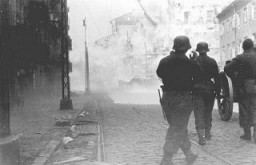
Explore an outline of the main definitional elements of the crime of genocide and how significant aspects of the law have developed through recent cases.
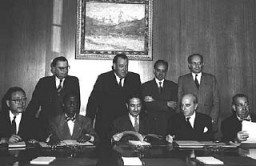
In 1936, David moved to Bucharest to live with his father. As Romania came under German influence, Romanian authorities introduced increasingly harsh measures against Jews. Antisemitic agitation increased and Jews came under attack in the streets of Bucharest and in other public places. David's father decided David should leave the country and arranged passage for him to Palestine. In December 1941, David left Romania from Constanta, a port city on the Black Sea, on the "Struma," an old cattle boat. The…

Lisa was one of three children born to a religious Jewish family. Following the German occupation of her hometown in 1939, Lisa and her family moved first to Augustow and then to Slonim (in Soviet-occupied eastern Poland). German troops captured Slonim in June 1941, during the invasion of the Soviet Union. In Slonim, the Germans established a ghetto which existed from 1941 to 1942. Lisa eventually escaped from Slonim, and went first to Grodno and then to Vilna, where she joined the resistance movement. She…
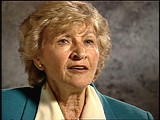
Tina was a medical student when the Germans invaded the Netherlands in May 1940. She and members of her sorority joined the underground, and she hid Jews in her house from the beginning of the war. Tina found hiding places for Jewish children, forged passports, and served as a courier for the underground.
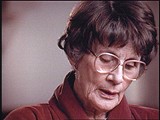
Under the Nazis, Jewish and other “non-Aryan” women were often subjected to brutal persecution. Learn more about the plight of women during the Holocaust.
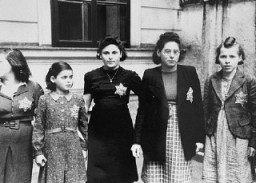
Learn about conditions and the treatment of prisoners in Ravensbrück, the largest concentration camp for women in the German Reich.
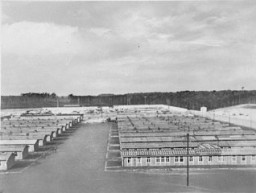
The “Third Reich” is another name for Nazi Germany between 1933-1945. Learn more about life under Nazi rule before and during World War II.
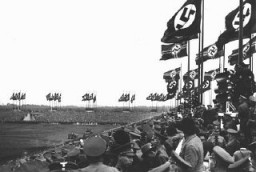
Learn more about the Transcarpathian region of Ukraine (Subcarpathian Rus) before and during World War II.
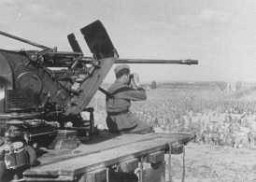
Irene and Rene were born Renate and Rene Guttmann. The family moved to Prague shortly after the twins' birth, where they were living when the Germans occupied Bohemia and Moravia in March 1939. A few months later, uniformed Germans arrested their father. Decades later, Irene and Rene learned that he was killed at the Auschwitz camp in December 1941. Irene, Rene, and their mother were deported to the Theresienstadt ghetto, and later to the Auschwitz camp. At Auschwitz, the twins were separated and subjected…

We would like to thank Crown Family Philanthropies, Abe and Ida Cooper Foundation, the Claims Conference, EVZ, and BMF for supporting the ongoing work to create content and resources for the Holocaust Encyclopedia. View the list of donor acknowledgement.